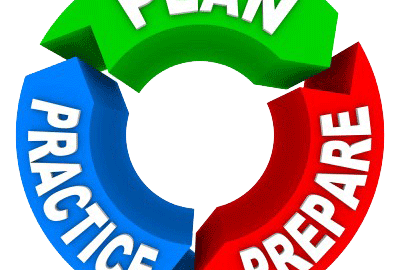I have to confess that after 22 years of marriage; getting into my wife’s car and finding an empty gas tank still irritates me beyond words! I have been preaching to her for years that allowing it to get below a quarter tank, lets dirt and debris get into the fuel line and clog the filter and worse yet, any that gets through, is extra wear and tear on the engine. No matter how much I talk, lecture or complain, it makes no difference; periodically I get into her car and see “20 miles to E”. I suppose it irritates her that I start looking for gas stations when my truck is on a half tank…
Since we’re discussing survival techniques, I think this, needs to be talked about, and few give it the attention, I feel it deserves! When I was young and broke I have to admit I was guilty of it as well… Nothing is as frustrating as running late and having to stop to get gas because you’re on empty! What if, it wasn’t something as simple as running late to work or an appointment? What if, your kid broke their arm or leg and you can’t get to the hospital until you get gas? That’s 10-15 extra minutes of pain your child has to endure because you failed to do something you’re going to have to do anyway, put gas in your tank! Ok, now let’s take it to the next level… What if you and your family were in the path of a tornado, wild fire or some other life threatening disaster? Now you have to wait in line at the gas pump with all the other people that have procrastinated getting gas until they have no other choice! It’s true that I will have to get gas in an emergency too, but even worst case scenario and my truck is as empty as I let it get, I still have 250 miles to empty.
I’ve been thinking a lot about transportation lately… I think in part, due to the book I have been reading. The book is, “One Second After” by William Forstchen, if you haven’t read it I highly recommend it and have had trouble putting it down (that’s why I’m writing this on Sunday night so I can meet my Monday deadline), if you haven’t read the book I won’t say more than it’s about an EMP attack on the United States. I’m not going to discuss the unique challenges that an EMP poses to transportation, because I have a full article scheduled for discussing EMP survival later in 2016.
Everyone has different transportation needs. Living in Texas, as I’ve mentioned, I own a truck. While my youngest daughter lives in southern California and drives a Prius. I’m sure there are many people that live in places like NYC that don’t own a car at all. To some people their vehicle is a symbol of their status or success, while others see it from a more practical angle. Regardless of your transportation needs, you have primary, secondary and tertiary means of transportation. The beauty of this blog is that I can’t possibly tell you what yours are, but by discussing it, it causes you the reader to think and examine your own situation and hopefully setup your own transportation plan.
Your primary mode of transportation, is the mode you use most often and you should allocate the necessary recourses to protecting it, if it goes down you drop one level in preferred transportation. If it’s your car, you should take time, every time you get gas, walk around it and conduct a visual inspection. Check your tires, for wear and the pressure, including the spare and know how to change a tire. Check oil and other fluids and change them when required. If you don’t know how, ask a mechanic what you should check regularly, most will be glad to point it out. If your primary mode is public transportation, identify alternate routes/busses/stations, always have an exit plan.
Your secondary mode, is the one that you use when the primary fails. This could be public transportation, a second car, a bicycle… whatever. The point is to identify it and know its condition before you need it. If you don’t have one maybe it’s time you identify what you do if you get in your car and it won’t start or there’s a fire or bomb threat at your subway station and trains aren’t running. This is a good time to mention, if you live on the coast, a lake or river, boats are a great means of transportation! In normal everyday life they can be a source of entertainment and enjoyment but in an emergency they give you access to waterways that contain fish and water fowl a very real food source. Small kayaks and canoes are relatively inexpensive and don’t take much space.
The tertiary mode for most of us is walking. In the immortal words of the comedian Steven Wright, “any where is walking distance if you have the time”. I’m talking here about everything has gone down, you have to get from A to B and staying put isn’t an option. Like I used to tell my children when they were teenagers, “ I guess you’ll be using your Chevro-legs”. Ensure you have a good pair of broken in hiking shoes in your closet. They should provide good foot and ankle protection and support with a slip resistant, high traction tread.
Many governmental agencies and private foundations recommend having fire drills at home so your children will know what to do in, and be able to escape a fire. They tell you, that you should have a primary and secondary escape route. Well in my opinion your town or city is no different. Have an egress destination in mind and primary and secondary route plans to get there. Keep a map in your glove box/bugout bag (don’t rely on GPS!) Plot the destination and the routes. Identify potential obstacles that could hinder your way. We’ll talk more about maps and using them in a future article.
I hope this has given you cause to pause and consider the importance of transportation and having a plan for it! See you next week…



